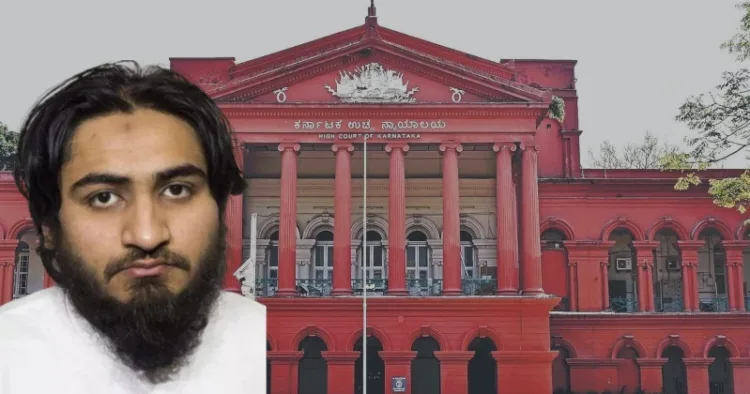The High Court of Karnataka has refused to drop charges against Dr Sabeel Ahmed, also known as Motu Doctor, who is accused of murdering Hindu Samaj leaders across India and collecting weapons and ammunition as part of a terrorism plot. The division bench, headed by Justices Srinivas Harish Kumar and GM Qazi, issued this order after hearing the petition filed by Ahmed.
During the trial, Ahmed’s counsel argued that the charges in the Bengaluru case were identical to those in a previous Delhi case, from which Ahmed had already been acquitted. The counsel contended that it is illegal to prosecute someone twice under the same charges according to the Code of Criminal Procedure (CrPC).
However, P Prasannakumar, representing the prosecution, argued that the charges in the Delhi case involved raising funds for terrorist activities. In contrast, the Bengaluru case involved the intent to kill multiple people and create widespread terror. He maintained that the cases should not be dismissed as they were distinct and urged the court to reject the petition.
After considering the arguments, the bench determined that although both cases involved sections of the same Act, the allegations differed. The court dismissed the petition, stating that the cases were factually distinct and separate charge sheets had been filed for each.
The case pertains to a conspiracy allegedly hatched by members of Lashkar-e-Toiba (LeT). The accused, including Dr Sabeel Ahmed, were charged with procuring illegal arms and ammunition to kill prominent members of the Hindu community in Hubli (Karnataka), Nanded (Maharashtra), and Hyderabad (Telangana). The complaint was initially filed in August 2012 at the Basaveshwar Nagar police station in Bengaluru. The investigation was later handed over to the National Investigation Agency (NIA) in November of the same year.
Dr. Sabeel Ahmed, residing in Saudi Arabia, was arrested in 2021 following his extradition. The NIA charged him under various sections of the Indian Penal Code (IPC), the Arms Act, and the Unlawful Activities (Prevention) Act (UAPA). Subsequently, a special court dismissed a petition filed by Ahmed seeking release from the case. He then challenged this decision by applying to the High Court.
Dr Sabeel Ahmed’s case also draws attention due to his familial connections. His brother, Kafeel Ahmed, was involved in a suicide bomb attack on Glasgow International Airport in 2007. This connection has further intensified scrutiny of Sabeel Ahmed and his alleged activities.
The High Court’s decision underscores the legal complexities of handling terrorism-related cases and the importance of distinguishing between different allegations even when they involve similar legal provisions. The ruling also highlights the ongoing efforts by law enforcement agencies to address and prosecute individuals involved in terror activities comprehensively.



















Comments